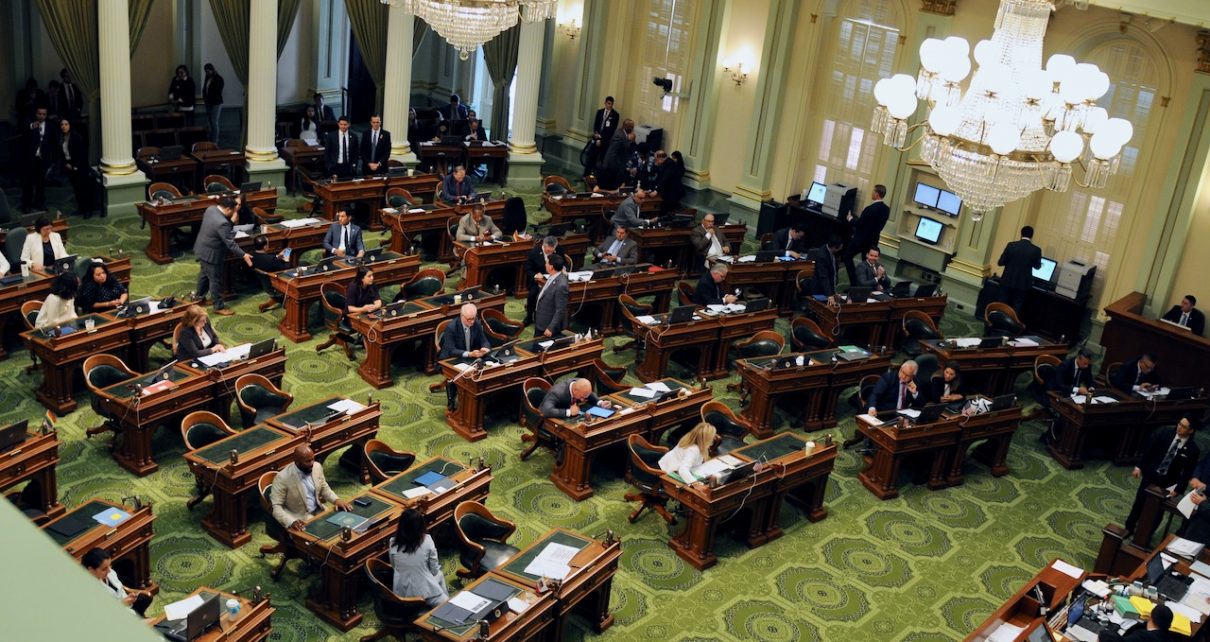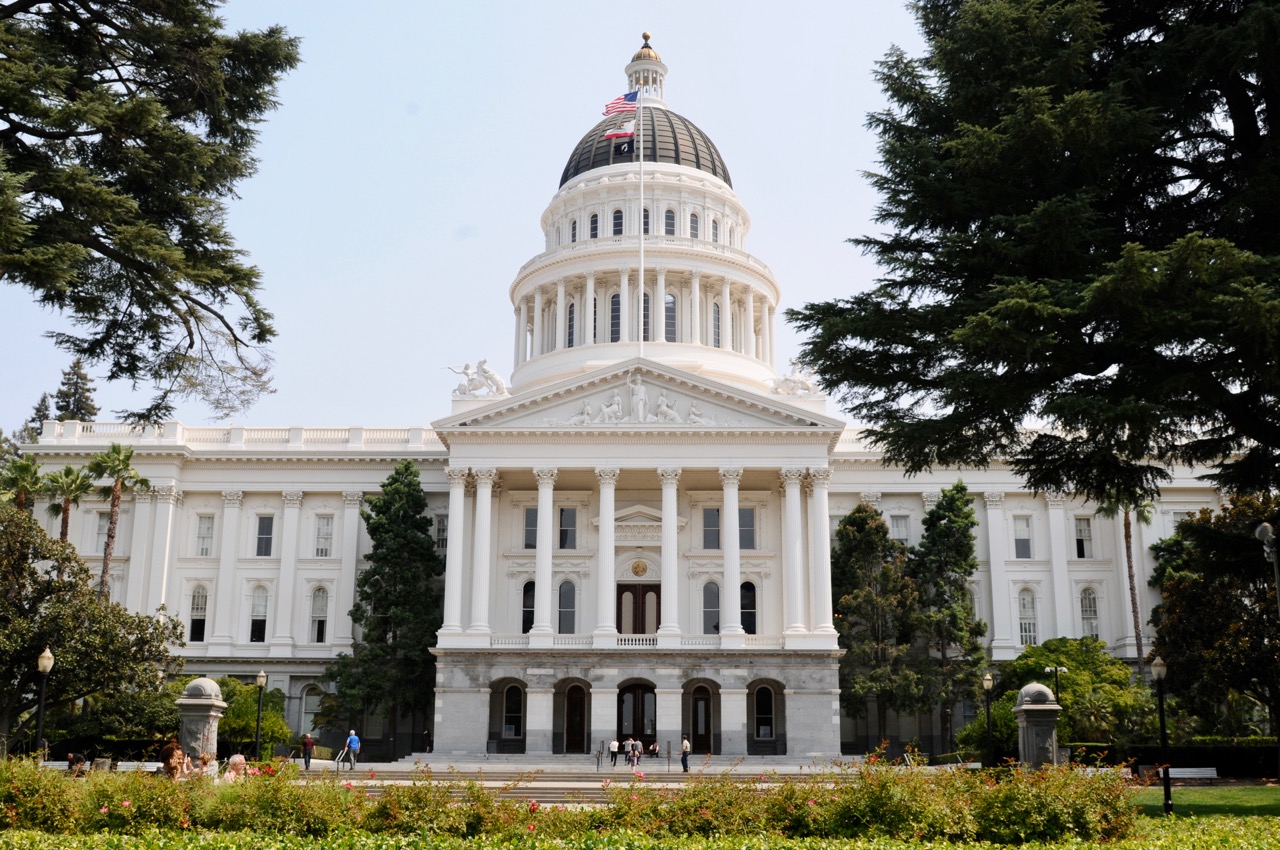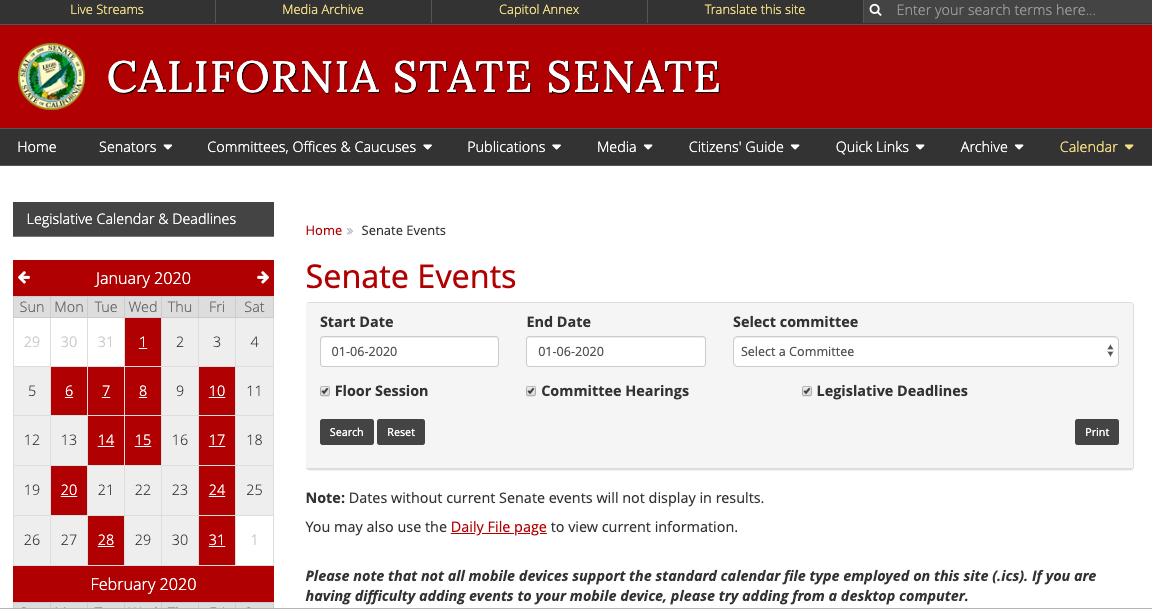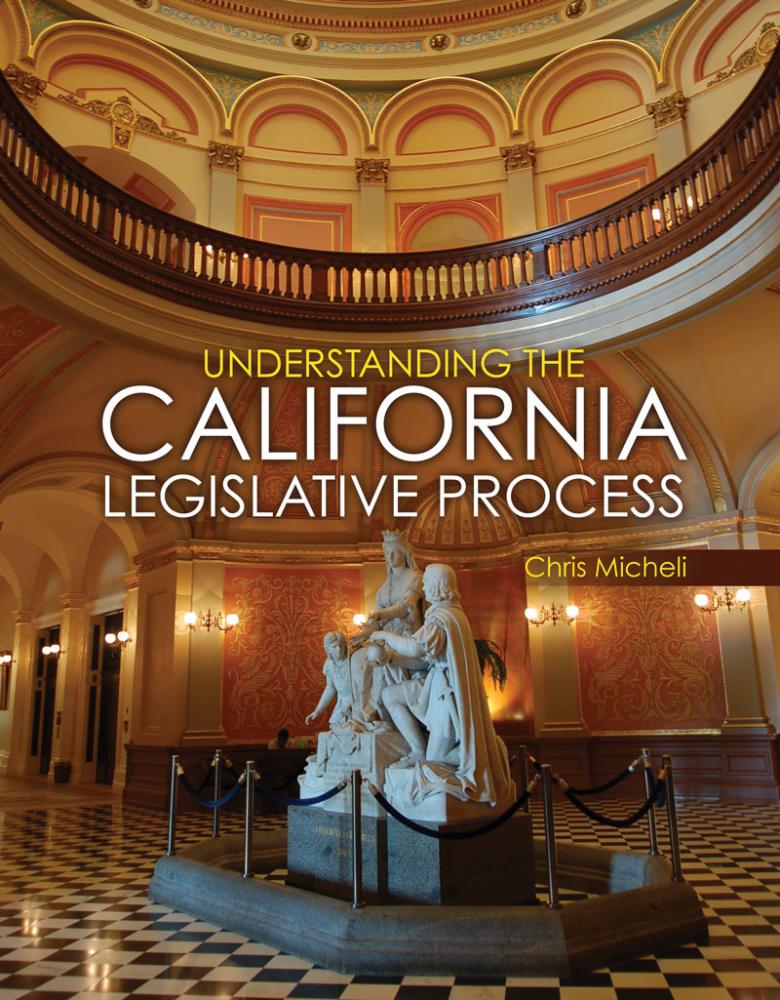
California State Assembly Chamber. (Photo: Kevin Sanders for California Globe)
Local Legislative Bodies and the Adoption of Ordinances
Action by ordinance is deemed to be compliance with the statute for all purposes
By Chris Micheli, December 27, 2022 6:19 am
The California Government Code provides for cities and counties, and sets forth a number of powers and duties of legislative bodies. Government Code Section 50020 provides that, when a statute requires a local agency to take legislative action by resolution and the local agency is required by its charter to take legislative action by ordinance, action by ordinance is deemed to be compliance with the statute for all purposes.
Section 50022.1 provides definitions for the following terms: “code,” “primary code,” “secondary code,” “published,” and “approved.”
Section 50022.2 specifies that, provided all the procedures and requirements are complied with, any local agency is authorized to enact any ordinance which adopts any code by reference, in whole or in part. Every primary code which is incorporated in any adopting ordinance must be specified in the title of the ordinance. A local agency ordinance may adopt a code, the adoption of which is expressly required or permitted as a condition of compliance with a state statute, by reference without complying with the procedures and requirements of this article.
Section 50022.3 provides that the legislative body must schedule a public hearing and notice of the hearing is to be published in a newspaper of general circulation in or nearest to the adopting local agency. The notice must contain specified information.
Section 50022.4 authorizes, after the hearing, the legislative body to amend, adopt or reject the adopting ordinance in the same manner in which it is empowered to act in the case of other ordinances; and, except as to the adoption of a code of existing ordinances of the adopting agency, nothing in this article is to be deemed to permit the adoption by reference of any penalty clauses which may appear in any code which is adopted by reference.
Section 50022.5 provides that nothing relieves any local agency from the requirement of publishing in full the ordinance that adopts any code, and all provisions applicable to the publication must be fully carried out.
Section 50022.7 specifies that, if at any time any code which any local agency has previously adopted by reference, is amended by the agency which originally promulgated or adopted it, then the legislative body may adopt such amendment or amended code by reference through the same procedure as required for the adoption of the original code; or an ordinance may be enacted in regular manner, setting forth the entire text of such amendment.
Section 50022.9 provides that a city may enact ordinances which adopt by reference county ordinances, codes, or any parts thereof and any amendments thereto by complying with the requirements of this article.
Section 50023 states that the legislative body of a local agency, directly or through a representative, may attend the Legislature and Congress, and any committees thereof, and present information to aid the passage of legislation which the legislative body deems beneficial to the local agency or to prevent the passage of legislation which the legislative body deems detrimental to the local agency.
In addition, the legislative body of a local agency, directly or through a representative, may meet with representatives of executive or administrative agencies of state, federal, or local government to present information requesting action which the legislative body deems beneficial to, or opposing action deemed detrimental to, such local agency.
Section 50024 authorizes the legislative bodies of local agencies to enter into associations and through a representative of the associations attend the Legislature and Congress, and any committees thereof, and present information to aid the passage of legislation which the association deems beneficial to the local agencies in the association, or to prevent the passage of legislation which the association deems detrimental to the local agencies in the association.
Section 50026 provides that the legislative body of any local agency, chartered or general law, which is otherwise authorized by law or charter to impose any tax on the privilege of earning a livelihood by an employee or any other tax, fee or charge on or measured by the earnings, or any part thereof, of any employee, is prohibited from imposing any such tax, fee or charge on the earnings of any employee, when such employee is not a resident of the taxing jurisdiction, unless exactly the same tax, fee or charge at the same rate, with the same credits and deductions, is imposed on the earnings of all residents of the taxing jurisdiction who are employed therein.
Section 50026.5 specifies that the legislative body of any local agency, chartered or general law, which is otherwise authorized by law or charter to impose any tax, is prohibited from imposing any tax, fee, or charge on or measured by the sale of any stocks, bonds, or any other securities.
Section 50030 provides that any permit fee imposed by a city, including a chartered city, a county, or a city and county, for the placement, installation, repair, or upgrading of telecommunications facilities such as lines, poles, or antennas by a telephone corporation that has obtained all required authorizations to provide telecommunications services from the Public Utilities Commission and the Federal Communications Commission, cannot exceed the reasonable costs of providing the service for which the fee is charged and cannot be levied for general revenue purposes.
- A Different Type of Legislative Statement? - December 12, 2024
- Service of Summons in California Civil Actions - December 11, 2024
- Sunset Clause Versus Repeal Clause - December 10, 2024




